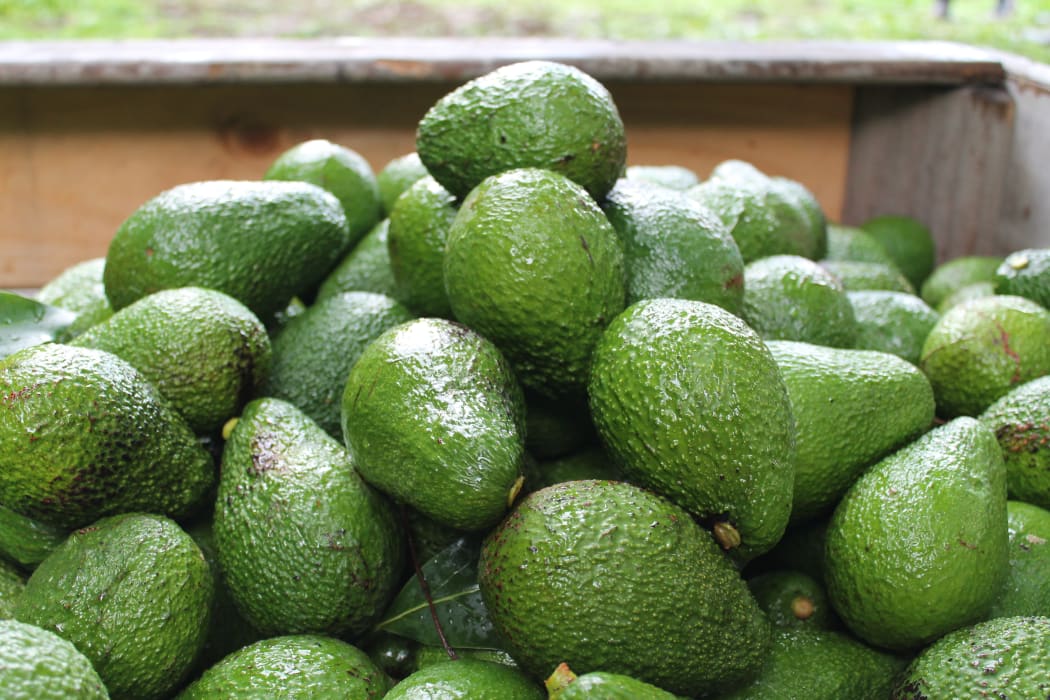
Photo: RNZ/Carol Stiles
Gales in Canterbury have toppled trees and taken out power. Avocado growers are having a rocky start to the export season.
Northland's been having the last flick of winter. It's been blustery but warm so dairy farmers have a good amount of grass even though it's a bit sticky underfoot. The region's kumara growers have been dodging showers to bed out the kumara under plastic. There was a 70 percent spike in kumara sales in the first two weeks of lockdown - people like them because they keep. The most recent harvest produced 35 percent more kumara than usual so growers are very pleased they've been able to move a lot of product. Prices are good for consumers too - between $2.50 and $3.50 per kilogramme. A grower says kumara keeps best in the dark at temperatures between 12 and 16 degrees., Never keep it in the fridge!
Fine weather around Pukekohe at the weekend was helping the district dry out but it turned rough by mid week, blew over a portable toilet or two, hopefully unoccupied, and delivered a little rain and small hail. Amongst it all growers did get the opportunity to control weeds and apply fertiliser, especially on the main onion crop.
So far Waikato has had a reasonably good spring. It's not too wet underfoot so there is been minimal pugging. Cool weather in the past few days though have slowed growth. Most central Waikato farms are 90 percent through calving so there are just the tail-enders to go. Tankers are on the road and milk production's ramping up. Many farmers are making sure their animals are in good nick for mating which will start at the beginning of next month. They're running blood tests - checking, among other things, selenium copper and cobalt levels. If they're not where they should be the cows will be given injections or farmers will increase the dose of minerals they add to the water supply.
In the Bay of Plenty avocados are coming off the trees a bit slowly - scattered rain has slowed up the harvest. Shipping to Asia is a nightmare. A grower and packhouse owner tells us you never know when the boat's coming. He says if it's delayed by four or more days you have to consider whether to ship the fruit or not - it might take 16 to 20 days to get there and then a few more to unload and get it to market and by then it might be too ripe. On top of that the Australian market is flooded with Australian fruit - many growing areas there produced double their usual crop and so the prices for New Zealand avocados in Australia are depressed. If New Zealand fruit is being sold direct to Australian supermarkets returns are just paying the bills but there's a negative return for our avocados on the wholesale market. We're told grower returns are expected to be less than half of what they were last year - last year was exceptional and growers were getting $20 to $30 per tray for their fruit. This year it'll be between eight and ten dollars.
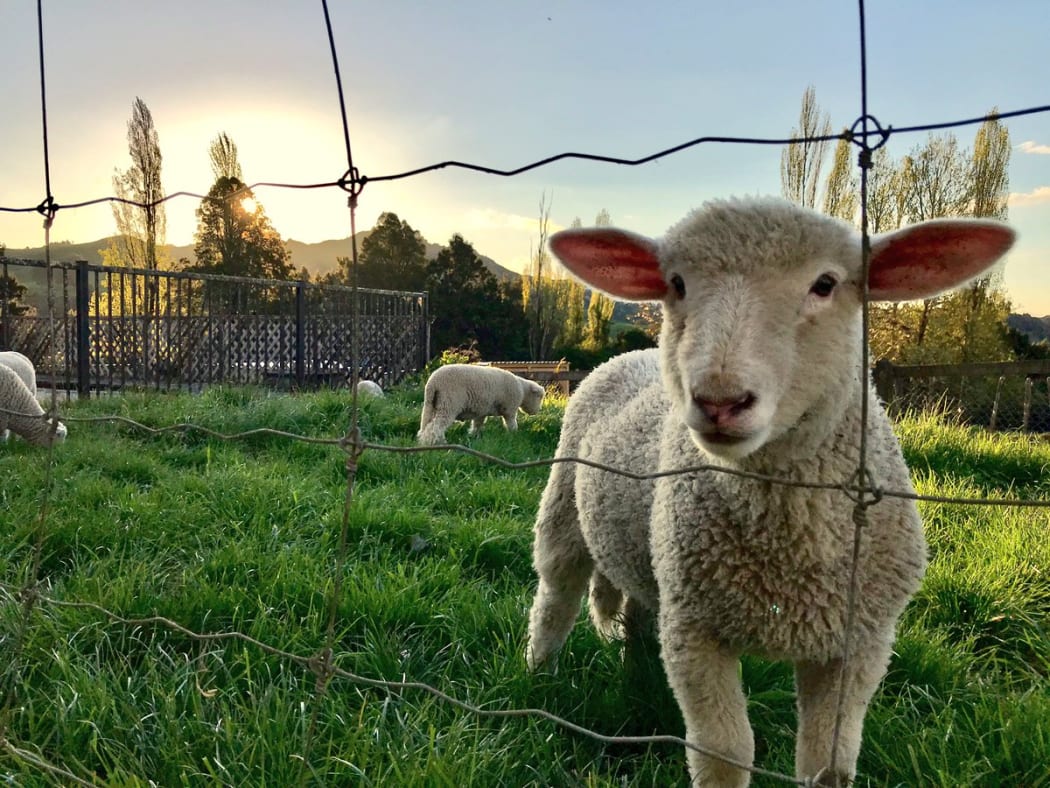
Photo: Sophie Barnes
In King Country the weather's been up and down - there was a horrible spell of wet, cold weather earlier in the week. Lambing is a fair way through - the survival rate seems to have been very good so far. Beef cows are spread out among the sheep in the hills ready for calving.
A Taranaki dairy farmer says it's been miserable working outside in the wind. It's also been cold. He says this time last year people were starting to cut silage - this year everyone's looking to buy it. Feed's short and sunshine and warmth is needed. Herds near the coast are all but through calving - others are getting there...
The East Coast is still hanging out for more rain. Around Wairoa the conditions have been ideal for lambing and calving but there's a bit of feed pressure. Helicopters have been busy putting on urea. Scanning results were down so farmers are keen to make sure there's plenty of grass so the lambs that are born, thrive. It was balmy, t-shirt weather at 8.30 on Friday morning. Farmers are concerned the nor-westers and their warmer temperatures are already rolling in - that's on top of 20 months with lower than normal rainfall.
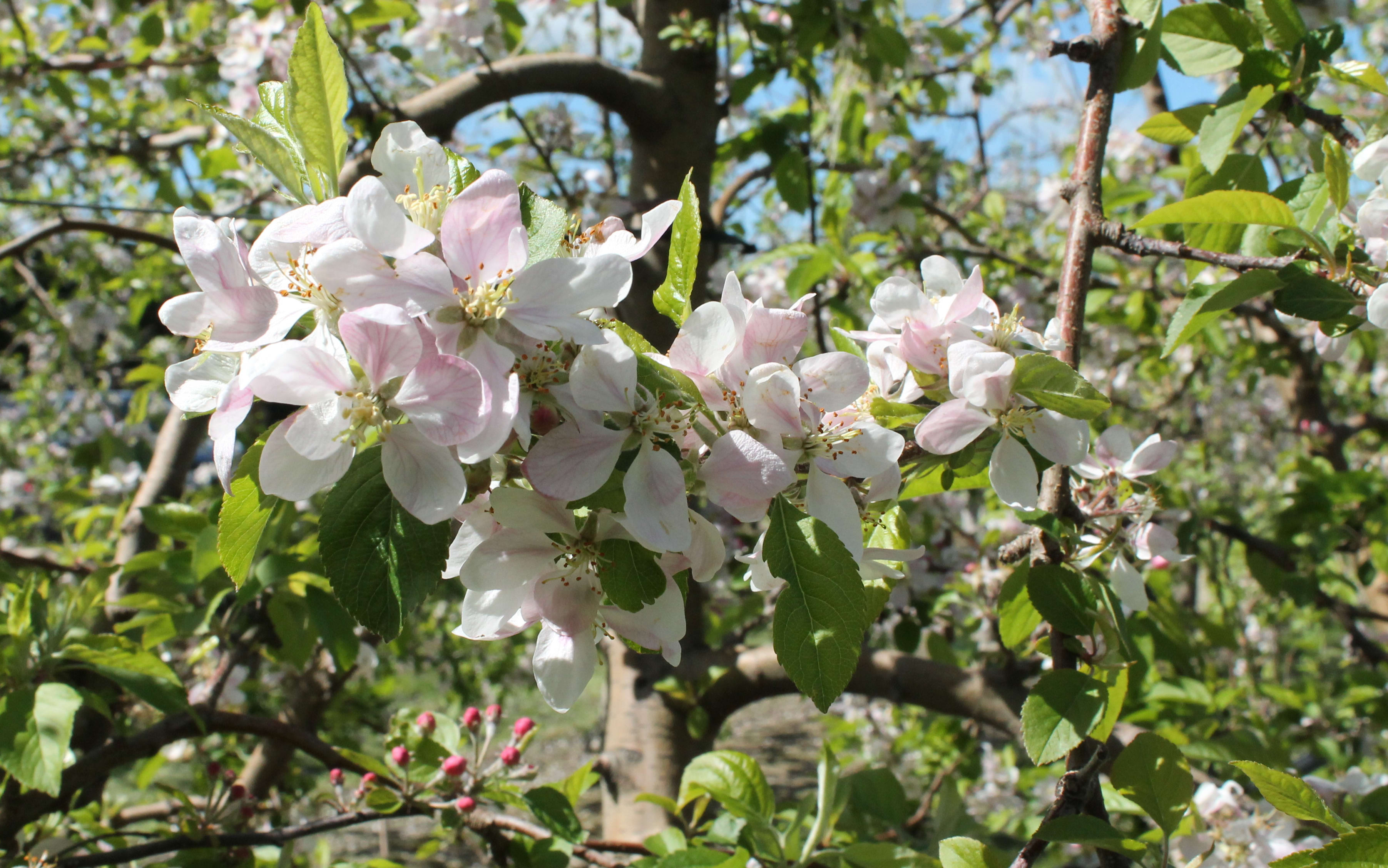
Photo: RNZ/Carol Stiles
It blew a gale in Manawatu on Thursday night - the region's used to wind but even, so this one really rated. Ten millimetres of welcome rain has fallen this week but it's been a bit cool. Feed utitisation's been fantastic - animals are getting well fed because not pushing the grass into mud.
Wairarapa also had damaging winds on Thursday night and Friday morning. The Castlepoint weather station recorded a gust of 200 kilometres an hour. A few trees and branches came down and sleep was interupted! Lambing's going well - the weather's been great for survival and although pasture levels have been low they're now starting to improve.
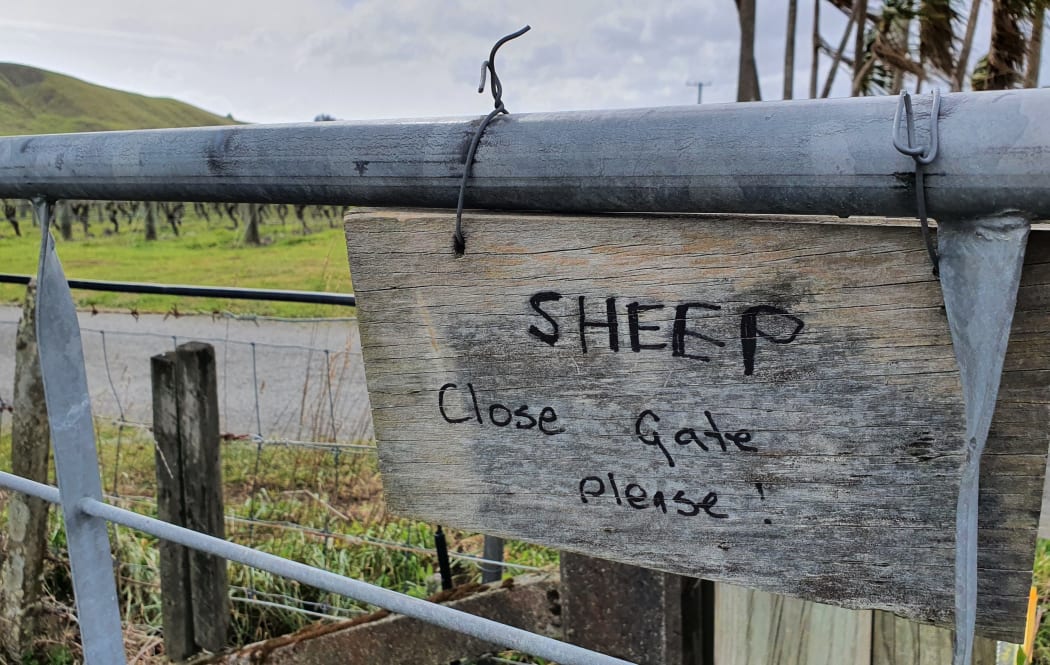
Photo: RNZ/Sally Round
A dairy farmer in Golden Bay was preparing for 90 kilometre an hour gusts on Friday and being blasted by the wind as we spoke. He says it has been a challenging season because of the wet but thinks they're through the worst of it. People are a bit short of feed but things are starting to turn with soil temperatures on the up. He's 90 percent calved and has just come up for air before focusing on getting cows back in calf, repairing damaged pasture and getting feed crops in.
Westerly gales this week in Marlborough are a sign that spring is here. Soil temperatures are still quite low at 9 to 10 degrees so feed is only just keeping up with demand. But farms are sitting pretty with moisture at a good level and once soil temperatures rise, they'll be away. Lamb survival rates have been fantastic and tailing is just around the corner. In the vineyard, Pinot and Chardonnay vines are in leaf and with one chilly morning this week, the frost-fighting windmills had to be pressed into action.
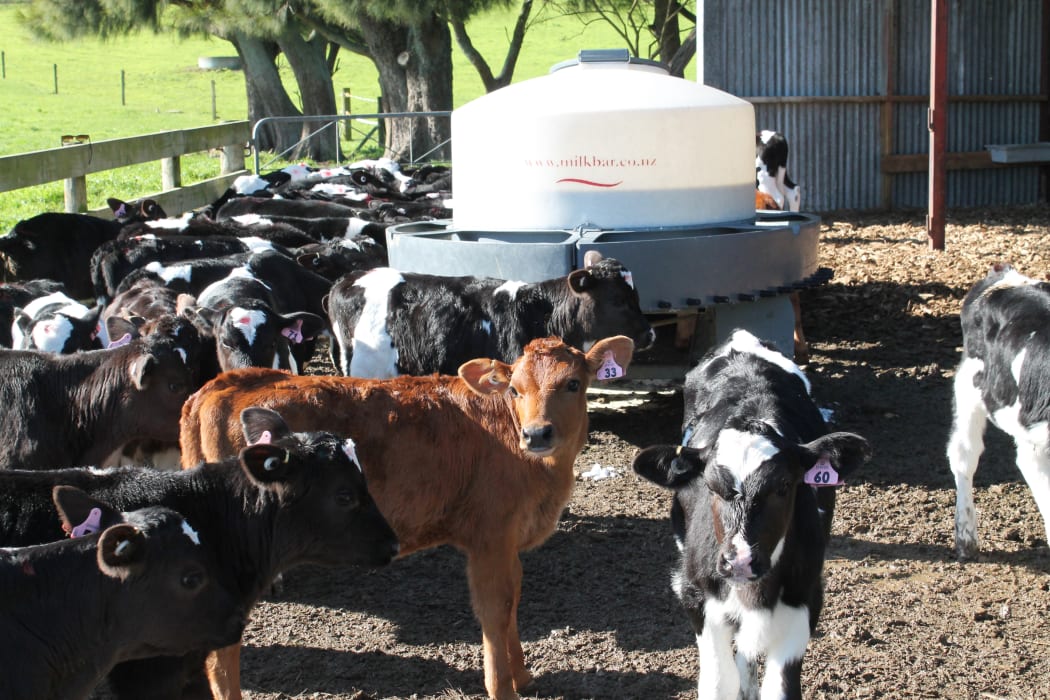
Photo: RNZ/Carol Stiles
It's been typical spring weather for our contact in the Grey Valley on the West Coast ... heavy squalls and strong winds. He says calving's been pretty damn good and he's 80 percent through. Mild temperatures for the time of year will hopefully kickstart pastures.
A mid Canterbury cropping farmer says viscious gales hit his farm on Thursday night. Power was out because a tree below the house had fallen on lines and he was expecting a few days without power . A lot of trees had blown over leaving gaps in shelter belts ... some of the trees had been there a while, showing the force of the wind. Two large irrigators next door had been upturned by the gusts. By morning people were out with their tractors and chainsaws clearing up. The farmer was planning to get the generator started so they could get on with things.
It was a similar situation further north in the Lees Valley. Our contact there had 20 odd shelter belt trees down - aged 40 years plus - power was out, fences damaged ... and he was waiting for the weather to settle down before heading out to set about repairing things. The feed situation's getting pretty tight but there'd be no feeding out until the gales abated.
The farmer we called in South Otago, was out on the lambing beat when rang. He had to rescue a few lambs that had been blown through fences. Gusts of well over 100 kilometres an hour were at their worst on Thursday afternoon and tapered off towards midnight. What can happen in such high winds at lambing time is that a ewe may be delivering her second lamb and the first twin gets blown away, depriving lamb and ewe of bonding time. But the farmer says twin ties can do the trick. By linking the lambs together there's a good chance the ewe will accept it back. He says quite a few trees had blown over and a truck was at the bottom of a gully having flipped off the road. Despite all that the farmer says it's one of the best spells of weather he's seen in his time farming.
After a fine start to the week in Southland, showers, wind and cooler weather blew in at the end of the week, filling the rain gauge to 65 millimetres for the week, about two thirds of the monthly average. One farmer says the weather has been pretty hard on stock these last couple of days and he has been busy shifting stock away from rising waters and to more sheltered paddocks away from the wind.
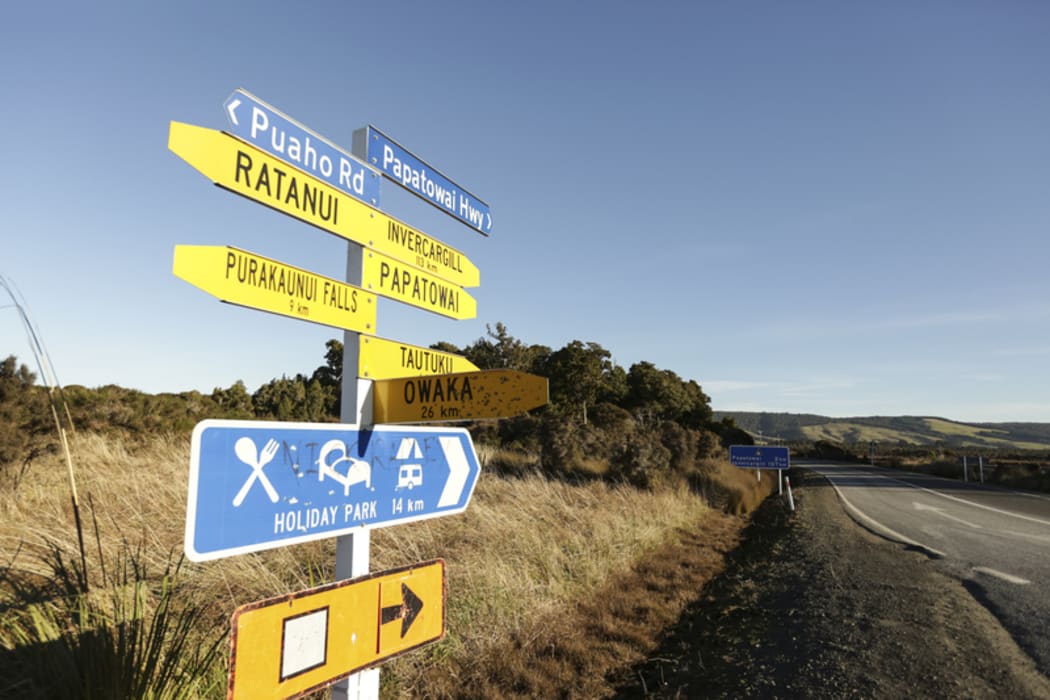
Photo: RNZ / Rebekah Parsons-King

